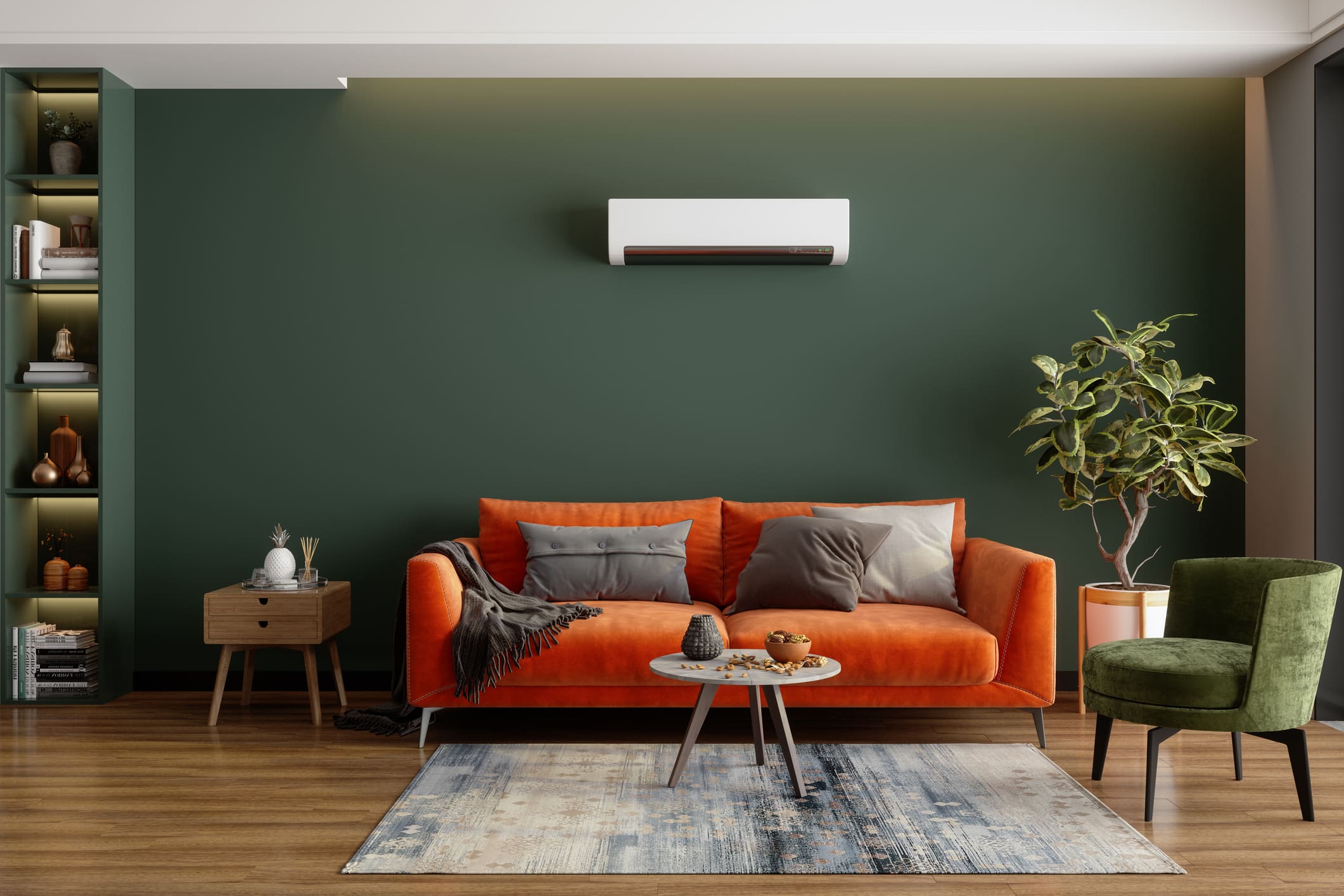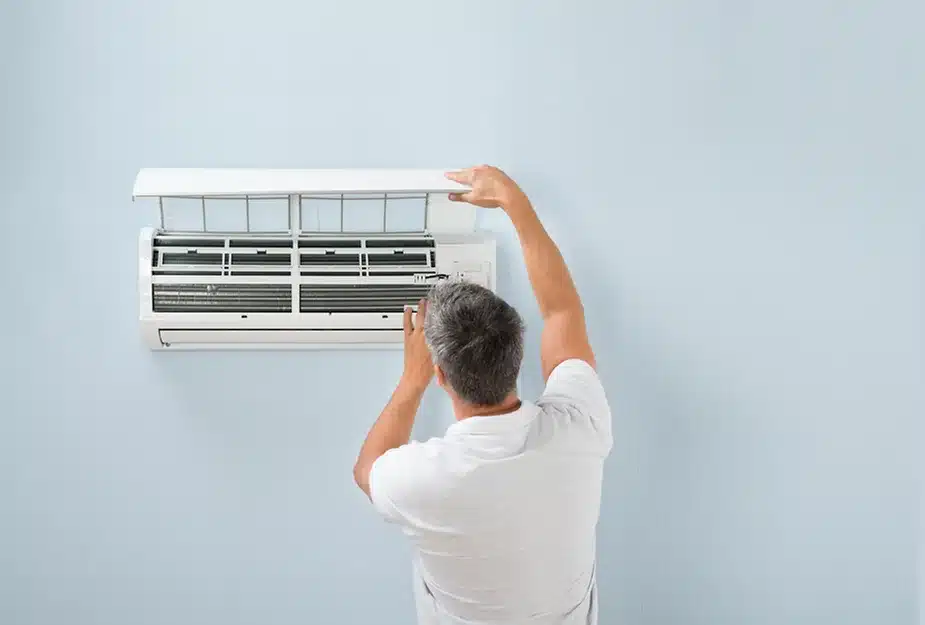With reverse heating, a gas boiler is definitely yesterday's news…
Unlike gas boilers, heat pumps transfer heat rather than generating it, resulting in lower energy consumption and reduced utility bills.
They offer year-round comfort, eliminating the need for separate heating and cooling systems. Heat pumps are safer to operate, as they don't involve combustion, reducing the risk of gas leaks or carbon monoxide poisoning.
On top of that, they produce fewer greenhouse gas emissions, contributing to environmental sustainability.



The most energy-efficient type of air conditioning system in the UK is usually a split-system heat pump, also known as a mini-split. These systems use inverter technology to adjust the compressor speed according to the cooling or heating requirements of the space, which can result in significant energy savings.
In most cases, you won't need planning permission to install air conditioning in your home, especially if the units are installed within the boundaries of your property. However, if you live in a listed building or conservation area, or if the installation involves significant alterations to the exterior of your property, you may need to seek planning permission.
It's recommended to have your air conditioning unit serviced at least once a year to ensure optimal performance and efficiency. Regular servicing can also help to identify any potential issues before they become major problems.
The most energy-efficient type of air conditioning system in the UK is usually a split-system heat pump, also known as a mini-split. These systems use inverter technology to adjust the compressor speed according to the cooling or heating requirements of the space, which can result in significant energy savings.
The noise level of an air conditioning unit can vary depending on factors such as the type of system, its size, and where it's installed. Generally, modern air conditioning units are designed to operate quietly, especially when compared to older models. However, it's always a good idea to check the noise ratings before purchasing a unit.
Yes, many air conditioning units in the UK are equipped with heat pump technology, which allows them to provide both cooling and heating capabilities. This can be a cost-effective solution for maintaining a comfortable indoor environment year-round.
There are several ways to improve the efficiency of your air conditioning system, including regular maintenance, keeping filters clean, sealing any air leaks in your home, and using programmable thermostats to control temperature settings.
When properly maintained, air conditioning systems pose no significant health risks. However, poorly maintained units can harbour mould, bacteria, and other allergens, which can negatively impact indoor air quality. Regular cleaning and servicing can help to mitigate these risks.
While some smaller, portable air conditioning units may be suitable for DIY installation, it's recommended to hire a professional FGAS technician for the installation of larger, permanent systems. It is illegal to install an air conditioning appliance with being FGAS qualified.